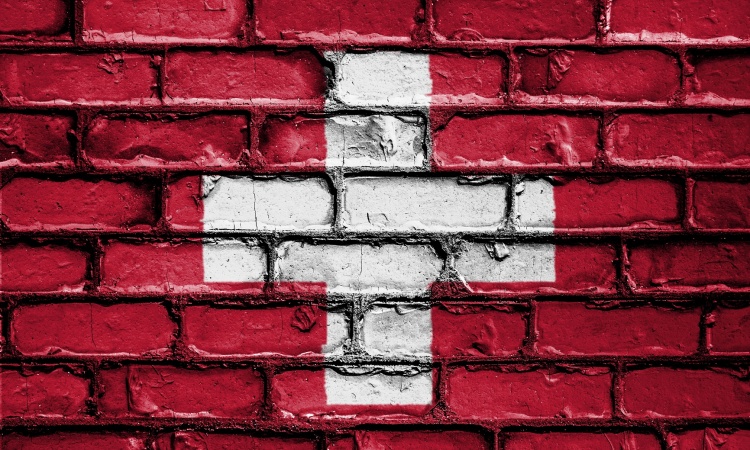Challenges for the new EU member states
7th European Health Forum Gastein
Austria. 6-9 October - Challenges of the new EU Member States will be high on the agenda of this year's EHFG.
The forum, timed to coincide with the constituent meetings of the European Parliament committees, expects 600 participants from over 45 countries, and reports that 56 government members have been invited, with acceptances confirmed by EU Commissioner David Byrne and WHO Regional Director Marc Danzon confirmed, as well as Roel Bekker (General Secretary of the Health Ministry, Netherlands), Chien-Jen Chen (Taiwan, R.O.C), Julio Frenk (Mexico), deputy state secretary Mojca Gruntar Cinc (Slovenia), and Maria Rauch-Kallat (Austria), Mihály Kökény (Hungary), Mitalip Mamytov (Kirghizia), Michéal Martin (Ireland).
Borders disappear, yet health gaps remain - The EHFG organisers point out that not all EU citizens have equal access to optimal medical care. Many must live and work under conditions likely to cause physical and mental disease. Many suffer from health disorders that could have been avoided through sufficient information and prevention. Despite the economic and political integration of the old and new EU Member States, the differences in life expectancy and health of the citizens within the European Union remain blatant: Swedish men live an average of 77 years, but the average Latvian man will die when aged 64. In Hungary, lung cancer numbers are five times higher than in Sweden. In Lithuania, TB cases are 17 times higher than in Sweden. ‘Can we accept such discrepancies in a united Europe?’ the EHFG asks.
EHFG President Dr Günther Leiner said: ‘It is not primarily a question of fate whether people stay healthy or become ill. It is necessary to examine the reasons behind such health inequalities and develop strategies to counteract any undesirable developments.’ The EHFG said it could make a substantial contribution to improve health in Europe as a competitive factor against the background of the Lisbon Strategy.
‘Certainly, our commitment to health cannot stop at the Schengen borders,’ Dr Leiner said, ‘Infectious diseases don’t respect borders either. We cannot ignore the fact that HIV rates in the Ukraine are twelve times as high as in the bordering countries of Poland or Hungary, or that TB cases are five times as high as in neighbouring Hungary. The EU must in its own interest undertake all efforts to help the states at the outer borders of a larger EU to cope with their health problems.’
Dr Leiner said the European healthcare debate must turn global, and that, in this context, the forum had convinced the OECD to become a partner of the 7th European Health Forum Gastein. ‘After the World Bank and the WHO, the OECD is now the third globally operating organisation that actively contributes to the European health debate at the EHFG. From the European side, the EHFG receives support from the EU Committee of the Regions (CoR), from the European Commission, General Directorate for Health and Consumer Protection, and from the European Observatory on Health Systems and Policies.’
Mental health - The 7th EHFG will also examine the current situation of people with mental diseases, define targets, discuss solution approaches, and work on the development of networks to better support sufferers and families.
According to a report by the European Commission, the EHFG pointed out, mortality due to suicide and self-inflicted injuries reached a rate of 42 for every 100,000 inhabitants (76.5% men, 12.6% women) in Lithuania in 1999, the highest rate in the entire European region and four times higher than the EU average. This figure is just as alarming as it is inconclusive in understanding the underlying problems and adequately counteracting these. All in all, there are too little resources for the research, prevention, and treatment of mental diseases, the EHFG pointed out. ‘Currently there is a huge gap between the demand for treatment and the services actually available. Even in economically advanced states with well-developed health systems, 44-70 % of patients with mental disorders receive no treatment, this figure being as much as 90% in developing countries. As it is often the case in the health sector, however, it would be economically sound to invest more into mental health, and in particular in preventive measures. The cost of mental diseases in EU Member States is estimated at 3-% of the GDP. In many developed countries, 35-45% of work absenteeism is attributable to mental problems.
In a parallel forum the OECD will present its latest study ‘Towards high-performing health systems’ (based on experiences in different countries) and in another parallel forum the focus will be on pharmaceutical policy in the enlarged Europe, as well as on technology assessment. Indeed, October’s EHFG meeting will examine almost all frontline issues in healthcare today - delivery, finance, politics - even the effects of our changing weather will have on healthcare in our united Europe.
Full details: www.ehfg.org
01.09.2004





